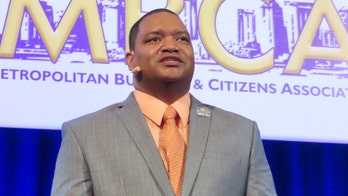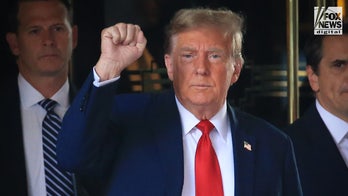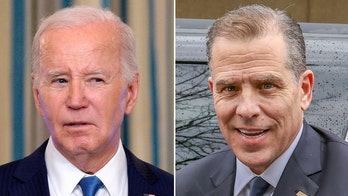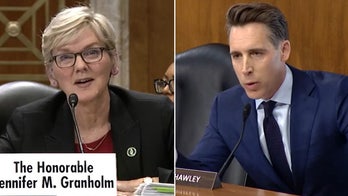Many Americans hit hard by the recession have been trading their annual family getaways for summer "stay-cations." But the economy apparently has done little to ground members of Congress.
Iraq and Afghanistan may be frequent destinations for lawmakers, but they pale in comparison to the more exotic places they've traveled, like Ireland, Switzerland and China.
Lawmakers defend their travel, saying missions like these are important to share valuable intelligence and build relations.
But Rep. Tim Johnson (R-Ill.) says some members of Congress take a spendthrift attitude about travel -- because it's not on their dime.
"I think the let-them-eat-cake mentality that many of us, many members have adopted in both the House and Senate is just not acceptable to the American people," Johnson said.
But that isn't reflected in the numbers. Congressional spending on overseas travel tripled in the last eight years, and has jumped 50 percent since Democrats took control of Congress two years ago.
According to congressional travel records, House and Senate members spent 6,910 days overseas in the first three quarters of fiscal year 2009, spending a total of $9.4 million.
Representatives traveled to some 127 countries this year, including hotspots in Europe, the Greek Islands, Hong Kong and Dubai. The Senate did its own share, traveling to 100 different countries -- including places like Scotland, Morocco, Denmark, Sweden and Italy.
Add in the cost of military transport, and estimates show that totals for congressional travel this year will reach over $15 million -- $2 million more than last year.
What's worse, there is virtually no limit on what they spend, where they go, what they do, or how many times they travel.
Records show that lawmakers often file expense reports with minimal information.
Mike Thompson (R-Calif.) submitted expenses for a five-day Asian trip in December for $15,943 and listed no countries, no meetings, no names and no purpose of the travel. A month earlier Thompson spent a week in the Middle East -- with no explanation of what taxpayers paid for, just a charge of $10,158.
This lack of detail is typical of congressional travel. )Click here to see where your senator or representative has traveled and records they submitted.)
Rep. Jack Kingston (R-Ga.) says that is a dangerous attitude to take. "One rule of thumb I have always tried to practice: don't go anywhere that you would not want to tell your newspaper. This is what I'm doing, and this is why it is relevant."
While private corporations across the nation have put restrictions on business travel, there has been no attempt to reign in the lawmakers in Washington.
Members are allotted up to $500 a day for expenses, in addition to their $170,000 salaries, and are also eligible to fly in either business or first class. For a trip to Europe or Asia, that could cost over $10,000 -- when flying coach costs just a few hundred dollars.
Over the summer break, House Minority Leader John Boehner traveled with five colleagues and four assistants for 10 days in August. They went from Washington to Germany and Switzerland to discuss financial issues, then to the Ukraine and Kazakhstan to talk about national security, then to Mongolia, China and Canada. But there are no names of whom they met, where they stayed or what, if anything, was accomplished. The bill for meals and lodging alone cost $50,000. While the military picked up the travel costs, which were in excess of $100,000, the trip is considered by many as excessive.
Some trips are not restricted to elected officials. Reports show taxpayers picked up the tab for trips taken by spouses and staff members, and sometimes without the company of the lawmaker.
In October 2008, six staffers from the Government Reform Committee, which oversees domestic administrative issues, took a nine-day trip to France, Kenya, Mali, Djibouti, Ethiopia and Germany at a cost of $87,984. No lawmaker accompanied the entourage.
Steve Ellis, vice president of Taxpayers for Common Sense, a watchdog group, says while these trips can be important fact-finding missions, there needs to be greater scrutiny.
"It comes pretty close in some cases where a Congressional delegation, a business becomes really more of a junket and a vacation," he said.
Johnson has called for greater disclosure about trips -- up front and when lawmakers return. So far, Congress has refused.
"We need to have accountability. We need to have transparency for the American people to have faith in the government that serves them," Johnson said.
The Associated Press contributed to this report.




